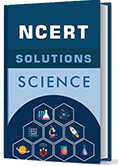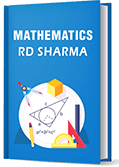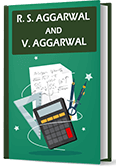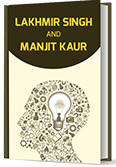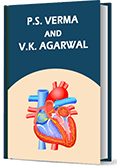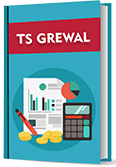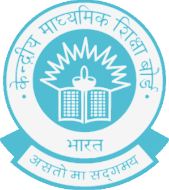
CBSE
(Central Board of Secondary Education)
CBSE is one of the oldest education boards in India and falls directly under the Ministry of Human Resource Development. It has schools worldwide that ensure Indians have access to the education system from the starting phase of their academic careers. One of the renowned boards in India, CBSE, was founded in 1962 and is headquartered in Delhi. CBSE classes and examinations are mostly conducted in the English language, aiming at student's overall growth and development via a balanced curriculum. It offers students a choice of subjects that helps them focus and shape their careers. With that said, CBSE comes under the list of one of the best boards in India that prepares its students for national and international competitive exams very early.
Select Your Class
The Central Board of Secondary Education (CBSE) is amongst the most prestigious and preferred Indian educational boards. There are approximately 20,102+ schools affiliated with CBSE. It aims at providing a holistic education system to all its learners, ensuring their mental and physical growth. CBSE Board prescribes a comprehensive syllabus and takes well-structured exams. The vast syllabus covers important topics that would help students qualify for challenging fields in future. CBSE Board Classes 10 and 12 have their exams in February and March every year at various examination centres.
CBSE pays special attention to Science and Maths. The board conducts various events all year round and encourages students to participate in activities, exhibitions, and extracurricular events. Special attention is given to the teaching methods to stay interactive and constructive. The teachers are trained to cater to the needs of students and help them perform up to their true potential. The board extends the same benefits to CBSE classes online as well. CBSE showcases outstanding results every year by paying attention to students' needs, addressing their issues, and providing room to grow their reasoning abilities.
CBSE Textbook Solutions
CBSE recommends a range of textbooks for every class, serving as its students' most reliable learning materials. Most schools prefer NCERT books for CBSE Classes 6 to 12. Other popular books for CBSE Classes 9 to 12 include R.D. Sharma, R.S. Agarwal, P.S. Verma, and more.
The CBSE textbook solutions covering the answers to every exercise in the textbook help students understand the concept at a steady pace. These textbook solutions are written in simple language to make students understand the key concepts and clarify doubts. Additionally, they serve as readymade question banks, assisting students in facing various questions that are likely to feature in their board exams.
CBSE Previous Year's Question Papers
CBSE board classes have an extensive syllabus. Solving previous years' question papers allows students to get more practice and know what to expect in the CBSE Class 10 and 12 board exams. They serve as a source of revision for CBSE Class 10 and 12 students. Practising via previous years' questions papers for 10 Class CBSE exams teaches time management which is crucial to scoring good grades. Previous Years’ Question Papers assist students in determining their weaknesses so that they work on them before the exam day and boost their preparedness levels.
Students can understand the exam pattern, how often a question is repeated, topic weightage, and problems they might encounter in their CBSE Class 10 and 12 board exams. So, boost your confidence and push aside exam pressure by immediately attempting the CBSE previous years' question papers.
CBSE Sample Papers
In addition to previous years' papers, sample papers are perfect revision material for CBSE students. Sample Papers for CBSE Classes 6 to 12 help students strengthen their fundamental concepts. Students get a complete idea of the various questions they might encounter in the exam. Sample papers allow them to check their preparedness for the exam. Also, the board releases sample papers for CBSE Classes 10 and 12 to acquaint students with the question paper pattern. The sample papers serve the following purposes:
- Increase proficiency in all topics of the syllabus
- Help prepare according to the time
- Allow quick revision of a vast syllabus
A good understanding of the question paper pattern via sample papers significantly minimises stress and helps emerge victoriously.
- CBSE Sample Papers for Class 6
- CBSE Sample Papers for Class 7
- CBSE Sample Papers for Class 8
- CBSE Sample Papers for Class 9
- CBSE Sample Papers for Class 10
- CBSE Sample Papers for Class 11 Science
- CBSE Sample Papers for Class 11 commerce
- CBSE Sample Papers for Class 12 science
- CBSE Sample Papers for Class 12 commerce
CBSE Syllabus
Students must have the CBSE syllabus for every subject by their side. Every year the board issues the syllabus for CBSE Classes 1 to 12, which includes a list of chapters for the teaching and learning process.
The Curriculum Committee and Governing Body of the Board approves the latest syllabus for CBSE board classes every year. CBSE Syllabus ensures that students do not miss out on any important topic while preparing for the board exams. Students preparing for competitive exams must cover all the topics in the CBSE syllabus, as many national entrance exams ask questions based on it. From the fundamental information to detailed topics, the CBSE syllabus has all the information required by students to crack their board or any competitive exam.
Practice Tests with Answers
Practice is vital for scoring high in the final exam. CBSE Classes cover a wide range of topics per subject, and retaining all the important concepts is challenging. Repeated retrieval via practice tests helps students know how well they are prepared to face the exam and allows them to assess their performance. Practice tests for CBSE Classes 9 and 10 serve innumerable purposes:
- Help identify and bridge knowledge gaps.
- Alleviate anxiety and allow to perfect time-management skills.
- Help in tracking progress.
- Assist in strengthening knowledge and retaining information for a long time.
Practising and analysing your performance is the key to improve your preparation for the upcoming exams. CBSE Classes 9 and 10 students can access several practice tests for each subject. Students can choose the chapters they have covered so far, select the number of questions for the test, and begin the test. Students can also check the correct answers for every question with optimal explanations. The following links will display a list of chapters in the syllabus.
CBSE Class 10
- CBSE Class 10 Physics Practice Test
- CBSE Class 10 Chemistry Practice Test
- CBSE Class 10 Biology Practice Test
- CBSE Class 10 Maths Practice Test
- CBSE Class 10 Hindi Grammar Practice Test
CBSE Class 9
MCQs with Answers
Multiple choice questions are integral to CBSE Classes 9 and 10 exam papers. Practising these tricky questions allows students to retain the concepts for longer. Students can practise and solve MCQs to check their preparedness for the exams. They can take an MCQ test at the chapter-topic level or select multiple chapters from the syllabus. Students can get instant results, correct explanations for every question, and reports with insights on their areas of weakness and strength by clicking on the links below.
CBSE Class 10
- CBSE Class 10 Physics MCQ's
- CBSE Class 10 Chemistry MCQ's
- CBSE Class 10 Biology MCQ's
- CBSE Class 10 Maths MCQ's
- CBSE Class 10 History MCQ's
- CBSE Class 10 Geography MCQ's
- CBSE Class 10 Civics MCQ's
- CBSE Class 10 Economics MCQ's
- CBSE Class 10 English Grammar MCQ's
- CBSE Class 10 Hindi Grammar MCQ's
CBSE Class 9
CBSE Revision Notes
More than textbooks, revision notes are necessary for last-minute revision as it helps in the long-term retention of concepts and formulas. Remembering every important detail is a challenging task. Highlighting and underlining texts helps, but preparing revision notes on a separate copy helps more. Revision notes enable you to quickly skim through the important details and recall the concepts easily. They are important not just for CBSE board class students but also for middle schoolers and aspirants, preparing for national/international competitive exams.
Revision notes for CBSE Classes 6 to 12 allow students to learn at their pace and achieve high grades in the final exam. Students should take help from revision notes written in an easy-to-remember format, keeping in mind the CBSE Syllabus, previous years' questions and the crucial topics. Students must meticulously refer to the CBSE revision notes while preparing for their exams.
- Revision Notes for CBSE Class 6
- Revision Notes for CBSE Class 7
- Revision Notes for CBSE Class 8
- Revision Notes for CBSE Class 9
- Revision Notes for CBSE Class 10
- Revision Notes for CBSE Class 11 science
- Revision Notes for CBSE Class 11 commerce
- Revision Notes for CBSE Class 12 science
- Revision Notes for CBSE Class 12 commerce
CBSE Exam Pattern
CBSE bifurcates its students into two categories:
Scholastic
The students are focused on core academic areas, including Social Science, Maths, Science, and Language.
Co-scholastic
The area includes activities such as sports, games, art, craft, music, and more. These are essential for the overall development of a student, and the board pays special attention to this area.
The academic year is categorised into terms 1 and 2. Every school affiliated with the CBSE board conducts two types of tests to evaluate the academic subjects:
Formative Assessment
FA tests are conducted for primary classes in the form of dictation, oral tests, homework, projects, class test, assignments, elocution, quiz, memory test, and more.
Summative Assessment
The internal tests conducted at the end of each term, i.e. twice a year, are summative assessments. Schools conduct these tests in pen and paper mode.
CBSE Updates and Notifications
We constantly monitor CBSE announcements which may benefit students. Any new update from the board is found in the Articles section on our website. Students must check out the recent notifications to stay updated with the recent changes. Learn how the changes in the syllabus will benefit you when the board releases the results for CBSE Classes 10 and 12, the exam pattern, or other important aspects.
-
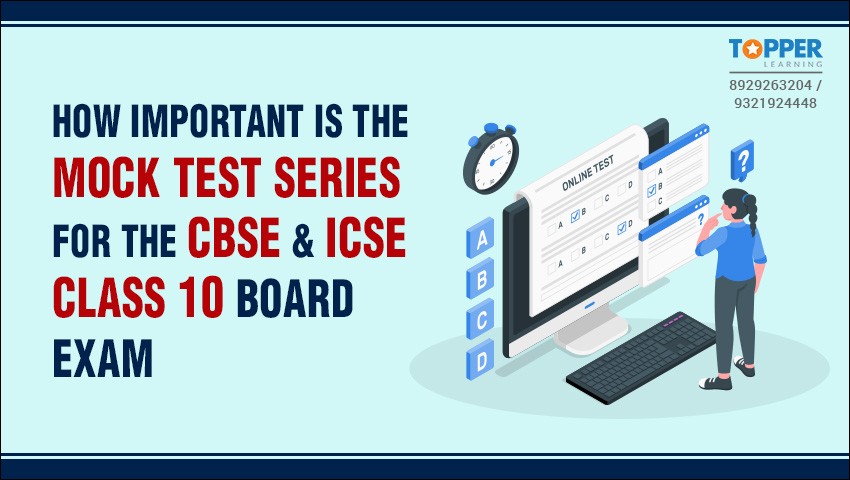
How Important is the Mock Test Series for the CBSE & ICSE Class 10 Board Exam
-
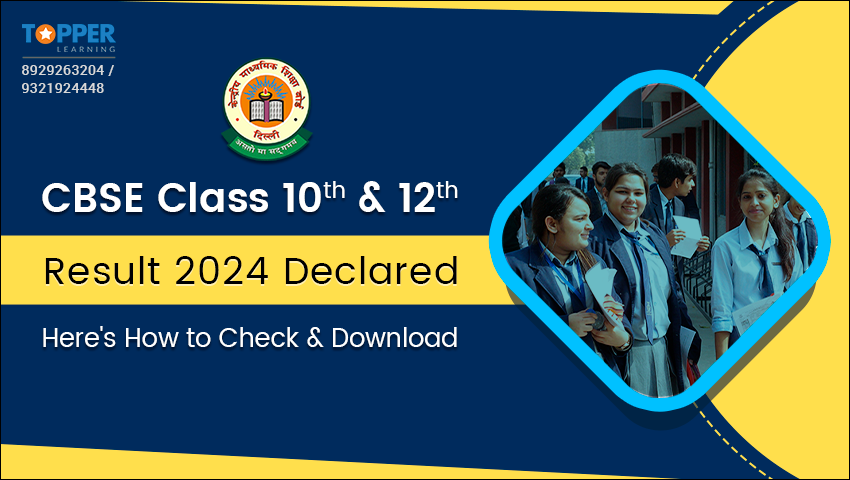
CBSE Class 10th & 12th Result 2024 Declared: Here's How to Check and Download
-
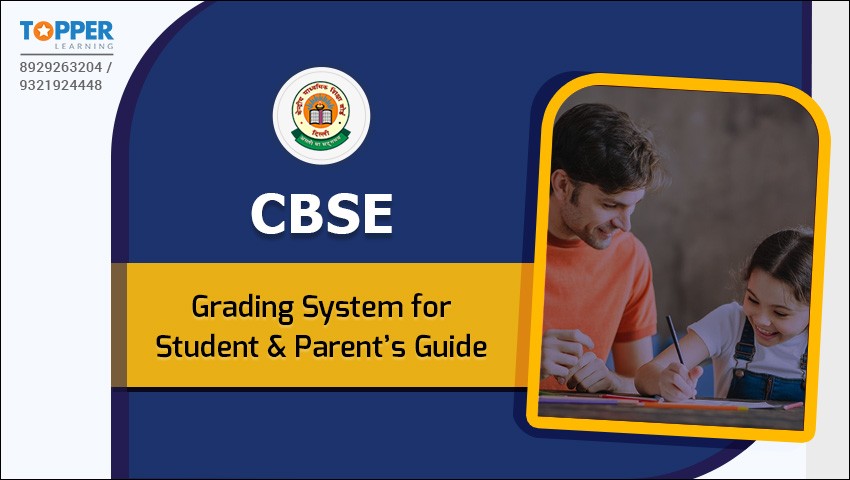
CBSE Grading System for Student & Parent’s Guide
Frequently Asked Questions on CBSE
Class 10
- Objective Type Questions: 40%
- Competency-Based Questions: 20%
- Short/Long Answer Type Questions: 40%
Class 12
- Objective Type Questions: 20%
- Competency-Based Questions: 30%
- Short/Long Answer Type Questions: 50%

